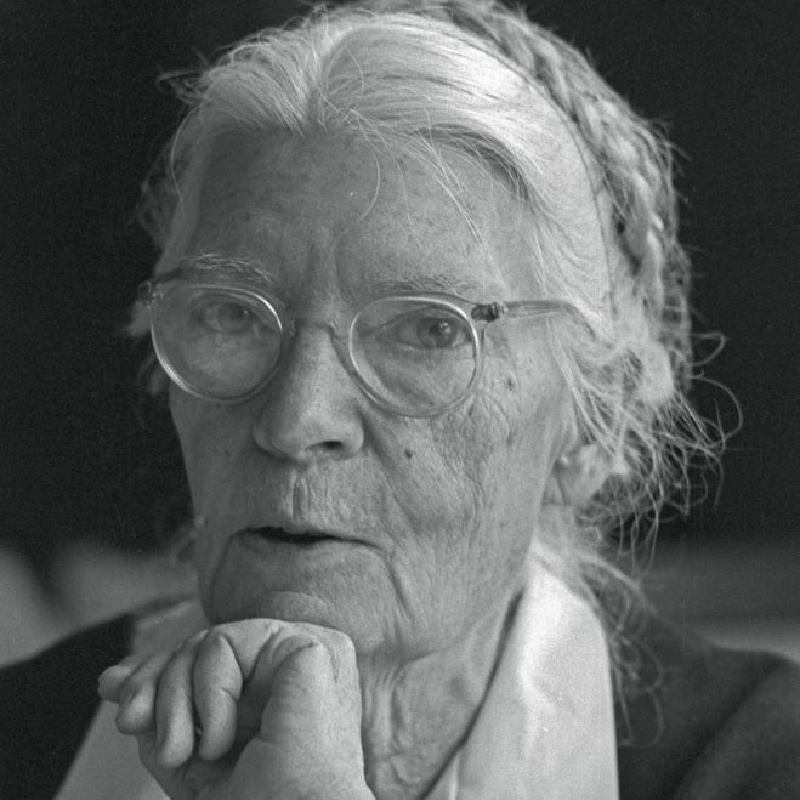In Malala Yousafzai’s, I Am Malala: The Girl Who Stood Up for Education and Was Shot by the Taliban, she wrote, “Once I had asked God for one or two extra inches in height, but instead he made me as tall as the sky, so high that I could not measure myself.” Malala’s words are not only inspiring but give insight into the perceived importance and relational nature of religiosity in adolescents. A national Pew Research Center survey found that the majority of youth in America say that religion is important to them. With this in mind, one may wonder how religious adolescents demonstrate their commitment to religion. What do they commit to in their day-to-day lives as a part of their religious identity?
This essay conveys qualitative research from an article published in the Journal of Adolescent Research, coauthored by Emily Layton, David Dollahite, and Sam Hardy. The sample included 80 religiously diverse adolescents from highly religious families. They ranged in age from 10 to 21 years and lived in multiple areas of the United States. Throughout the interviews with these youth, seven “anchors of religious commitment” came to light: a) religious traditions, rituals, and laws; b) God; c) faith tradition or denomination; d) faith community members; e) parents; f) scriptures or sacred texts, and g) religious leaders.
Commitment to Religious Traditions (including Rituals and Laws)
The most common anchor of religious commitment the youth spoke of involved religious traditions, which included rituals and laws. These are the outward, visible behaviors that are frequently linked to religious commitment. Religious traditions involve, include, and encourage particular behavioral activities that are event-centered, such as religious celebrations, marriage traditions, and times of fasting. Religious rituals are the daily and weekly habits that are often associated with religious observation. Religious laws are the rules of a particular faith tradition, such as wearing religious clothing, abstaining from certain foods/drinks, standards of sexual fidelity, charitable giving, and modesty in dress.
A 15-year-old Catholic boy described how religious rituals in his life are a part of his personal identity. He said,
Compared to other kids my age, I think I’m pretty religious, ’cause I go to church every Sunday. I pray every day. I altar serve. I go to CCD [religious instruction]. And religion is a big part of my life.
A 19-year-old Muslim woman spoke of her commitment to personal prayer. She said,
We pray five times a day. And usually, two of those prayers are, well, in the winter time, two of them are during school hours. And so what I would do is, like, during lunchtime or whenever I didn’t have a class, I had already like talked to the principal or whoever was the head of the school, and they gave me a room where I could go pray. And so I would just go do that.
A 14-year-old Catholic boy spoke of his commitment to rituals he participated in with his family. He explained,
Well, I, we try to do something with faith, or religion, a lot of times. And we say prayers every night and before meals and stuff. And [my parents] really try to teach us. And we go to church every Sunday. And I guess [my parents] just really want to . . . bring religion into our lives and to make us better.
Commitment to God
Commitment to God was the second most frequently discussed anchor of religious commitment. Various terms were used by the religiously diverse youth when discussing this anchor (“Jesus Christ,” “Jehovah,” “our Creator,” “Allah,” and “all the Saints and Angels”). “God” was used most commonly and is used here as a theoretical description. Some youth discussed their commitment to God as a source of authority and guidance. Others described the love, friendship, and support they felt in their personal relationship with God. Adolescents also described commitment to God centered on trust, honor, respect, and gratitude. At times of challenging decisions, they spoke of seeking counsel from God. Lastly, youth described their commitment to God as a sense of duty and responsibility. An 18-year-old Baptist woman explained:
I’m so happy that I have someplace where I can go, and God loves us unconditionally. And no matter what I do, He’s always there, and He always loves me. And just thinking that you know the creator of the universe, thinking that God actually loves me is just amazing.
Commitment to Faith Tradition or Denomination
Many of the religious youth spoke of commitment to their faith tradition as an anchor. They labeled themselves as an adherent of a specific faith tradition. A 12-year-old Jewish girl explained:
Well, it’s worth it because being Jewish is very special, and we’re different, and I kind of like that a little bit. And I’m willing to make sacrifices so I can be Jewish, more Jewish than I can be if I don’t do it, I guess.
Some adolescents also committed to their particular faith as a source of authority and a foundation of values and beliefs. A 15-year-old Muslim boy explained how Islam guides his life when he said:
Islam is doing my religion because Islam is not just something you’re doing at certain times of the week or whatever. It’s real, like you do it all day, when you sleep . . . it’s part of what you do. Part of the way you eat, the way you treat other people.
Some described their faith as a personified entity that they were committed to. Others explained it as a center point for their family and a safe foundation to fall back on during challenging times. A 15-year-old girl who is a member of The Church of Jesus Christ of Latter-day Saints spoke of how important her religion was in her family life. She said:
It’s the most important thing that influences our family because, without it, I don’t think we would be a full and complete family, because through the hard times where we’re all kind of going our separate ways, but then I know that each of us thinks about the religion and we’re all like, yeah we’re supposed to make up, and that’s what we’re supposed to do. And that’s what we do, and we feel better about it.
Lastly, some youth spoke of their religious commitment being repeatedly passed from parent to child as a generational commitment. A 20-year-old Orthodox Jewish man explained that his father “felt sort of the weight of all of the sacrifice that had been made for three thousand years so that a father could pass to their son to their son to their son the knowledge that we’re Jewish and this is what it means.”
Commitment to Faith Community Members
Another religious anchor discussed was a commitment to the members of their faith community (e.g., congregation, parish, synagogue, ward). Intergenerational relationships with fellow members of the faith community were a form of commitment pointed out by some of the participants. Many of the youth also spoke of feeling personal support and strength from their congregation’s members, as well as feeling a sense of community and even of family among their congregation. A 16-year-old Presbyterian boy described his feeling of belonging amongst his congregation. He said,
Religion has sort of taken on a new role in my life, from being something just to turn to in a time of need to something that I really care about and I participate in just for the joy of connecting to the people I’m worshiping with.
Other adolescents emphasized commitment to their faith community through serving their congregation. A 14-year-old Catholic girl was asked why she liked being an altar server, to which she replied, “I just like serving the church. It makes me feel good that I’m serving the community.” Lastly, some of the youth spoke about commitment to their faith community because it was fun to be together.
Commitment to Parents
Another anchor of commitment the adolescents described was commitment to mothers, fathers, and parents. Youth described parents as a religious authority in their lives. They also spoke of trusting, respecting, and honoring parents as positive expressions of their commitment.
A 14-year-old Latter-day Saint boy explained that he doesn’t drink certain beverages when he is with friends because he honors his parents. He said, “Because they’ve [parents] taught me not to do that, and I respect them.” Lastly, some youth discussed duty or responsibility to parents as an anchor of religious commitment. A 17-year-old Muslim girl shared:
I want to be able to fulfill my duty in Islam upon my parents because I wouldn’t want to be the cause of them not being able to fulfill their duty, like if I was to disobey, and I wouldn’t want them to be questioned about why wasn’t I obeying the rules of God.
Commitment to Scripture or Sacred Texts
Participants commonly spoke of a religious commitment to scripture or sacred texts, frequently referred to as “the word of God.” Youth described sacred text as a source of authority and truth—a standard, guide, and foundation. They also spoke of their commitment to scripture as a collection of experiences by others who can serve as life models. An 18-year-old Baptist woman shared how she depends on the Bible for clarity in confusing times. She said,
I just remember sitting in English class last year, and we were discussing a lot of things, and I just remember sitting there thinking how confused I’d be on this earth if I didn’t have the Bible and God’s standard and morality to live by. Because things can be reasoned different ways and just become so relative, and then you don’t know what truth is, and what right is, and what wrong is. And just sitting in that class and watching people try to like reason these things out and thinking they don’t know. They might think this one day, and then someone will present a good argument tomorrow, and they’ll swing over to the other side. And I was even so confused about [it]. I was thinking I want to go home and look at the Bible.
Commitment to Religious Leaders
The last anchor of religious commitment discussed was commitment to religious leaders. Various adolescents mentioned youth group leaders, a spiritual father, prophet, rabbi, a Christian Science practitioner, and a bishop. The two common forms of this anchor of commitment were as a relational connection and as a source of authority. A 14-year-old Orthodox Christian girl spoke of her current and future commitment to having a relationship with a religious leader in her life. She said,
I can’t think of anything that I would really do differently. I’d just follow the basic patterns set out by the church. And just consult with a spiritual father; have a spiritual father for the family, and as long as you have that and base and connections with the church, really, it would be just about what we’re doing right now.
Conclusion
For many youth, religious belief, practice, and community are central to their moral development, identity formation, and family relationships. This faith is often grounded in anchors of religious commitments that adolescents make in daily life. Faithful youth experience these anchors in many ways, and the commitments are often highly relational. Relationships with God, parents, faith community, and leaders were all important facets the adolescents shared as commitments in their lives. Just as Malala described, these youth are learning and growing as they commit through various religious anchors.

















